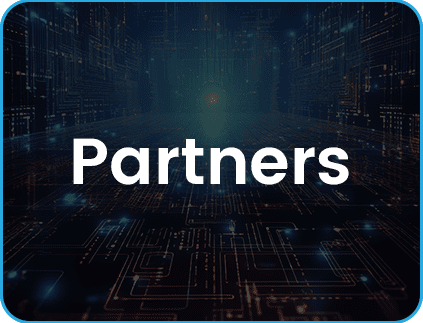- January 21, 2022
- Posted by: Indium
- Categories: AI/ML, Big Data

Gartner suggests that businesses must do 20% fewer proofs of concept (POCs) and instead focus on maturing successful projects. Often, businesses spend all their energies on single projects but are unable to see a transformation and are definitely unable to scale due to a narrow vision.
Drawing parallels with a ‘crawl, walk, run’ approach, an article published in O’Reilly suggests that businesses must set AI goals appropriate to their technical maturity. They should start as small and specific to begin with, surely, but when proven and as the AI maturity of the organization increases, they should become a non-incremental, holistic, and organization-wide AI vision and strategy that can fuel all AI initiatives and development.
McKinsey points out that value-creation identification, strategy, and road map should be the mantra adopted for embracing AI in an organization, though in this particular article it is said in the context of the supply chain, this holds true for any AI project. A clearly defined strategy can improve the alignment of the business strategy with its digital program and increase the success of AI adoption while lowering costs and increasing the value of the AI initiatives.
The Benefits of AI are Clear; It’s time to Act
AI adoption is growing at a rapid rate, 37% compound annual growth rate, according to a Deloitte report, with the market expected to exceed $191 billion by 2024. Apart from improving the competitive advantage of the companies, AI adoption is also increasing because it enables:
- Faster Decision Making: Streamlining and speeding up informed decision-making using AI’s predictive analytics skills.
- Insight-Driven Continuous Improvement: Businesses can gain critical insights using AI that can help with continuous improvement across the organization.
- Lower Costs: AI-based automation can assist humans with repetitive tasks, improve processes, reduce errors, thereby lowering costs and enhancing innovation.
- Improved Productivity: AI can work 24 hours, without fatigue or boredom. This increases the productivity and the quality of service their ability to work without breaks.
While this is what is possible, an MIT Sloan survey shows that out of the 90% of companies that invested in AI, less than 2 out of 5 had reported business gains from AI in three years. This is because, the success of an AI project depends on a variety of factors, including, the right goals, leadership, expertise, and approach. Most importantly, it needs to be scalable backed by a roadmap to guide the business through the process. Instead of focusing on transforming one process, say onboarding of customers to a banking portal, it should provide a range of end-to-end customer services while enabling the business to keep pace with its evolving needs.
Do you like reading about AI/ML solutions? Check this out!
To find out more about Indium and how we can help you leverage AI/ML to drive business impact, visit here:
Get in touch now
Best Practices for Creating an AI Roadmap
The success of the AI/ML project at scale depends on many factors, including:
- Collaboration: AI projects use data culled from across the organization and external sources to draw insights. Putting together a multi-functional team can help with identifying, prioritizing, and setting goals for AI opportunities keeping in mind governance, compliance, ethics, cost, and risk.
- Setting Goals: For most projects, setting SMART (Specific, Measurable, Achievable, Relevant, and Time-based) goals is recommended. This helps with monitoring the progress and course-correcting in case of deviations. But for AI, it may not be as appropriate due to certain flexibility in what can be achieved, which can impact time. A better approach would be to identify an outcome and pose well-framed questions and a hypothesis around it. Scientific methods can be used to validate the hypothesis and ensure that it is feasible and achievable.
- Allocate Budgets: There is a paradigm shift in the way skills and resources are leveraged in AI and the benefits in the form of RoI and expected outcomes may take a while to be visible. Therefore, the financial goals should be measured from the perspective of the transformation they result in and not just surface-level solutions.
- Get Leadership Buy-in: This is essential to ensure the sustainability of the AI projects and requires C-level leadership buy-in. They should be supported by subject-matter experts, AI champions who facilitate communication between groups.
- Insight Documentation: All the stakeholders need to be aligned to a common vision or goal, making insight documentation important.
4 Key Steps for Creating the Roadmap
To create an effective roadmap for your AI journey, follow a 4-step process. This encompasses:
Step #1 Putting a Team Together: To arrive at the right goals, the first step would involve putting together a cross-functional team supported by data scientists and AI experts. This will enable understanding organization-wide needs and the resources available to undertake the projects.
Step # 2 Identify Projects for AI Transformation: The second step would be to identify the workflows that can benefit from an AI transformation. These could be business-critical processes or tasks that are monotonous, causing delays in the process.
Step #3 Classify Them: The projects can be grouped into short, medium, and long-term based on urgency and the time taken. This will help achieve small success and gain maturity that can help in meeting the long-term vision.
Step #4 Assess Data: Since data is at the core of all AI projects, having a realistic assessment of data availability, integrity, and relevance to the projects identified is important. If it is not, then understanding how to source, store, and manage it will have to be planned and executed.
Partnering with Indium Software: To create an AI roadmap for your enterprise
Indium Software’s expertise in AI/ML solutions can help you assess AI opportunities in your organization and remove the impediments to AI innovation. Our data scientists and AI experts can work closely with your cross-functional team to create a roadmap, assess the health of your data, and create a roadmap for achieving short, medium, and long-term goals. Our cross-domain and cross-functional expertise can also help you create an AI strategy that is best suited to your business needs.
Broadly, Indium Software brings to the fore deep expertise and experience in the following areas:
- NLP
- Predictive & perspective analytics
- Cognitive analytics
- Text analytics
- IoT-enabled AI modeling
Over the years, we’ve enabled the AI journeys of some of the world’s most forward-looking corporations including a leading mobility services provider and an oil & gas company.




